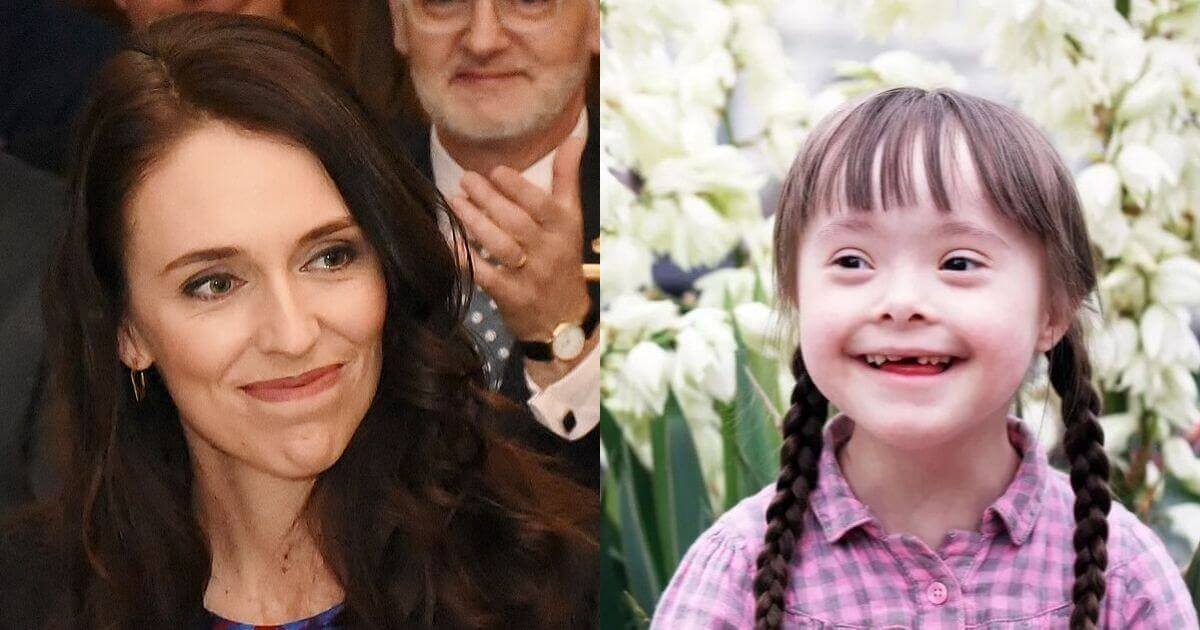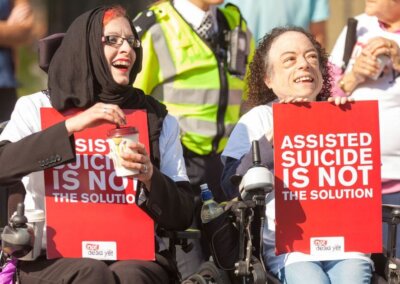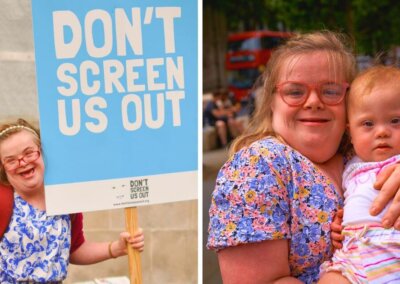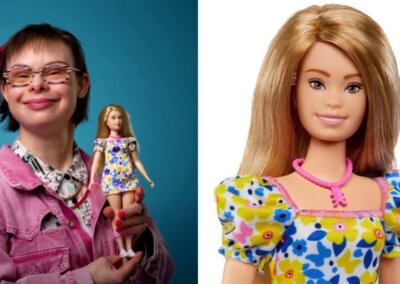Parents of children with Down’s syndrome, as well as leading Down’s syndrome advocacy groups, have spoken out against the New Zealand Government’s abortion Bill which will permit abortion up to birth for babies prenatally diagnosed with the condition. The Bill has been introduced following a pledge before the last election from the country’s Prime Minister Jacinda Ardern to make widespread changes to abortion law.
On the final day (19/09) for public submissions on the New Zealand Abortion Legislation Bill, a number of parents have publicly voiced their concerns about the harmful impact this Bill will have on people with Down’s syndrome.
The new abortion Bill
Currently, there is a 20-week time limit for disability-selective abortions in New Zealand law.
The proposed legislation will see this time limit removed and abortion for babies prenatally diagnosed with Down’s syndrome will be available up until birth, with the approval of a single doctor.
In 2017, Saving Down Syndrome highlighted their concern that in her pledge to change the abortion laws, New Zealand Prime Minister Jacinda Ardern, would end up introducing abortion up to birth for babies with disabilities. In response, Jacinda Ardern made a commitment to not increase the time limit for disability-selective abortion.
Saving Down Syndrome, in their submission on the Abortion Legislation Bill, highlighted that Jacinda Ardern had broken that promise. Hundreds of people with Down’s syndrome and their families have signed an open letter calling on Jacinda Ardern to not break her promise.
In their submission, Saving Down Syndrome highlighted that the relevant clause in the proposed New Zealand legislation, only requires one registered health practitioner, which could include a single nurse. By contrast, in Victoria, Australia – which has a similar law – there is a higher threshold requiring two doctors two approve a late term abortion.
In the handful of jurisdictions that have a similar clause, in practice this has allowed for abortion for disabilities including Down’s syndrome right up to birth. In fact, there have been over 1,600 abortions of babies with a disability in Victoria, Australia, since the law was changed in 2008.
Pressure to abort
Many parents recounted the pressure they were put under by health workers to either undergo prenatal genetic testing for Down’s Syndrome (with the assumption that the mother would then choose an abortion) or to have an abortion if genetic tests suggested their child had an Down’s Syndrome.
Aggie Brown, whose adopted son Reuben has Down’s Syndrome, said his birth mother was put under constant pressure to have an abortion once her child was prenatally diagnosed with having Down’s Syndrome.
“Unfortunately her GP was strongly asking her to consider having an abortion and was actually giving the birth mum all the worst scenario if she decided to keep the baby,” she said.
“The birth mum actually dreaded to go to her health visits because it was always brought up by the GP and we actually applaud the birth mum for sticking to her guns.”
Rachel Price, a New Zealand mother who has a daughter, Eden, with Down’s Syndrome, recounted a very similar experience during a subsequent pregnancy. Even when Rachel said that she did not want genetic testing on multiple occasions, the clinic she attended made an appointment for her anyway, which she told them to cancel.
“We were under immense pressure to go and have genetic counselling,” she said.
“But why? If we have another child with Down’s Syndrome we are quite OK with that and we will carry on with the pregnancy.”
The representative for the New Zealand Down Syndrome Association, Diane Burnett also has a daughter, Jada, who has Down’s Syndrome, and she said the social and medical pressure was intense when she wanted to opt out of the prenatal screening process.
The women said the developments in prenatal screening aimed at detecting disabilities has led to an assumption that women will want an abortion if they find out their baby might have Down’s Syndrome.
They were concerned that New Zealand could edge closer to what has happened in countries such as Iceland, which has an almost 100% abortion rate for unborn babies prenatally diagnosed with Down’s Syndrome.
One parent, whose son has Down’s syndrome, went so far as to say routine abortion of babies diagnosed with Down’s Syndrome was a form of eugenics.
“I think New Zealand can do better than Iceland. I feel really saddened to hear that Iceland abort 99 percent of people that have Down’s Syndrome,” she said.
“To me that seems like a eugenics programme, and that’s just madness.”
What’s it actually like to have a child with Down’s Syndrome?
In addition to the pressures they felt in regard to abortion, all the parents were eager to let others know how happy their children with Down’s Syndrome were, and the one-sided nature of the discussion which rarely shows this.
Diane Burnett of the New Zealand Down Syndrome Association said women are just not given the full picture when they find out. “They are given very medical and clinical information,” she said.
“Figures on heart conditions and health conditions and hearing loss and eyesight problems, and people with Down’s Syndrome are not the only people who have those issues.”
“They’re not getting what it is actually like to have a child with Down’s Syndrome.”
Aggie Brown whose adopted son had Downs’ Syndrome said “Most people know that with Down’s Syndrome they carry the happy gene, they are always smiling,” she said.
“They do have their moments, they are strong-willed, but overall, for Reuben, it’s very rare that he’s cranky. He’s always a happy-go-lucky child and we are very fortunate.”












